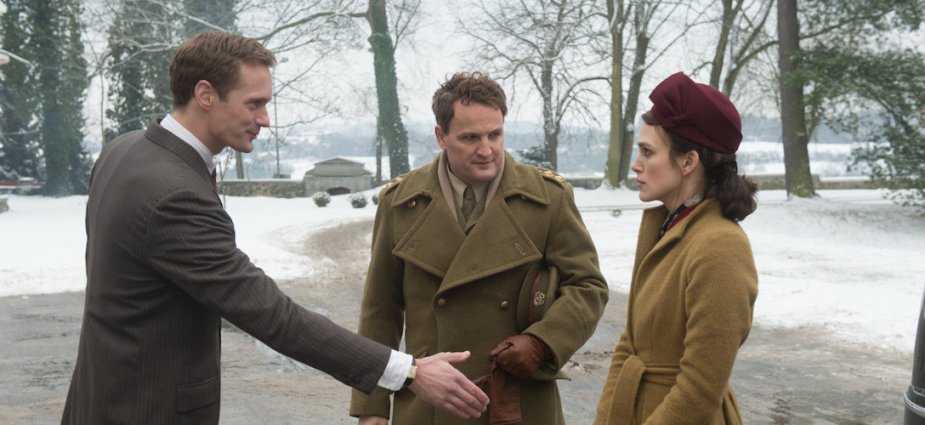The Aftermath set in post-war Germany follows Rachael (Keira Knightly) who travels to Hamburg to be reunited with her estranged husband Lewis, a British Army Colonel tasked with overseeing the rebuild of the city. Once they arrive in their luxurious home, Rachael learns that her husband has allowed the mansion’s previous owner was German widower Lubert (Alexander Skarsgard) and his troubled daughter who stays in the attic. Lonely in their shared grief and loss of her child and his wife, Rachael and Lubert’s feelings of resentment for each other soon blossom into a passionate affair.
Those who enjoy World War II and period dramas will likely enjoy the stunning cinematography that brings the shattered war-torn city of Hamburg to life. The uniforms of the British soldiers and glamorous dresses on the contrasting backdrop of gutted Germany conveys the grief that came with the victory of the Allies. The struggle Rachael has to empathise with Lubert in the beginning thaws over time as she realises that ultimately ‘No one wins in a war’. As she comes to terms with her loss in the situation she did not expect to be in, Rachael justifies the affair as she finds her husband constantly absent.
Although Lubert plays a meaningful part in showing Rachael she can be happy again, the viewer can not help but empathise with Lewis. Australian Actor Jason Clarke gives the character nobility and empathy to his duties as he suppresses the grief and vulnerability over the loss of his son. The return of Rachael unearths feelings he is ill-equipped to deal with and Clarke’s performance is the standout of the cast.
The events all lead up to the climax of the film, in which Rachael is faced with the decision of starting a new life or staying behind working on her marriage. Although slow in pace at times, it is an interesting take on a time in history the west know little about, mixed with a cliché story of romance, passion and betrayal.
Readers also enjoyed this review of Colette.





